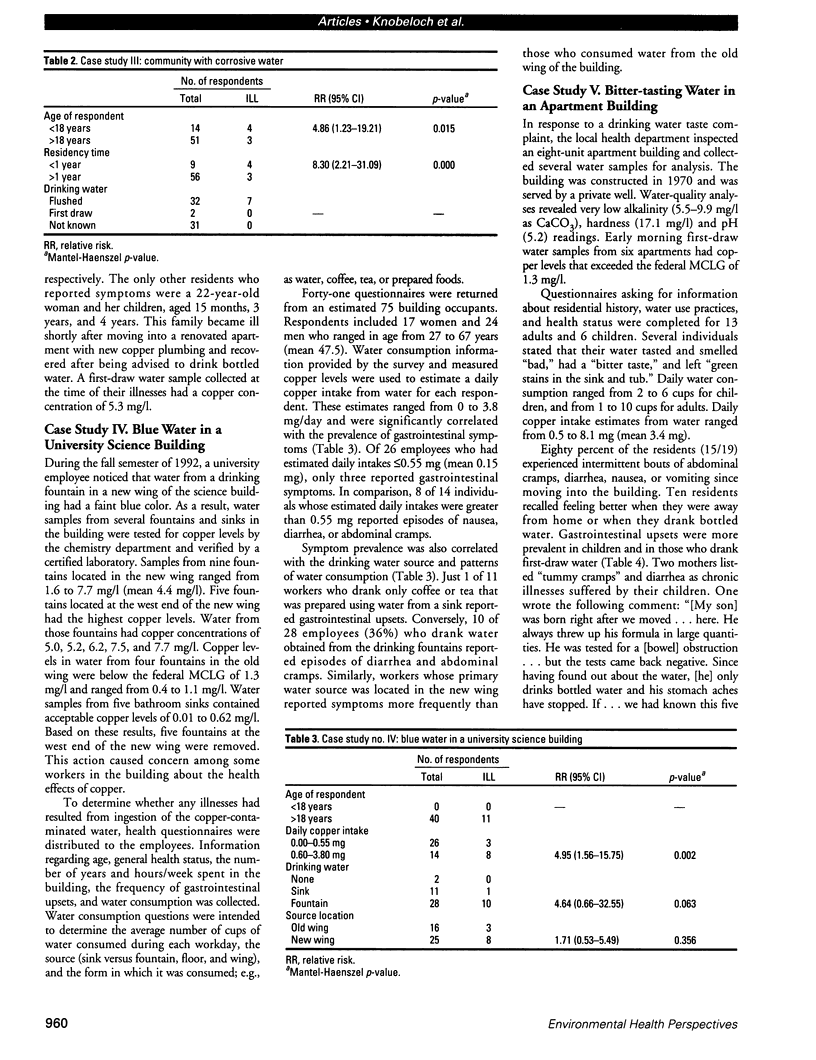Abstract
During 1992 and 1993 the Wisconsin Division of Health investigated five cases in which copper-contaminated drinking water was suspected of causing gastrointestinal upsets. Each of these case studies was conducted after our office was notified of high copper levels in drinking water or notified of unexplained illnesses. Our findings suggest that drinking water that contains copper at levels above the federal action limit of 1.3 mg/l may be a relatively common cause of diarrhea, abdominal cramps, and nausea. These symptoms occurred most frequently in infants and young children and among resident of newly constructed or renovated homes.
Full text
PDF



Images in this article
Selected References
These references are in PubMed. This may not be the complete list of references from this article.
- Böttiger M., Mellin P., Romanus V., Söderström H., Wesslen T., von Zeipel G. Epidemiologin kring ett poliofall i Sverige. Lakartidningen. 1979 Jan 3;76(1-2):30–34. [PubMed] [Google Scholar]
- Pennington J. A., Young B. E., Wilson D. B. Nutritional elements in U.S. diets: results from the Total Diet Study, 1982 to 1986. J Am Diet Assoc. 1989 May;89(5):659–664. [PubMed] [Google Scholar]
- Pettersson R., Kjellman B. Kräkningar och diarré vanligaste symtomen hos barn som dricker kopparhaltigt vatten. Lakartidningen. 1989 Jun 21;86(25):2361–2362. [PubMed] [Google Scholar]
- Spitalny K. C., Brondum J., Vogt R. L., Sargent H. E., Kappel S. Drinking-water-induced copper intoxication in a Vermont family. Pediatrics. 1984 Dec;74(6):1103–1106. [PubMed] [Google Scholar]




